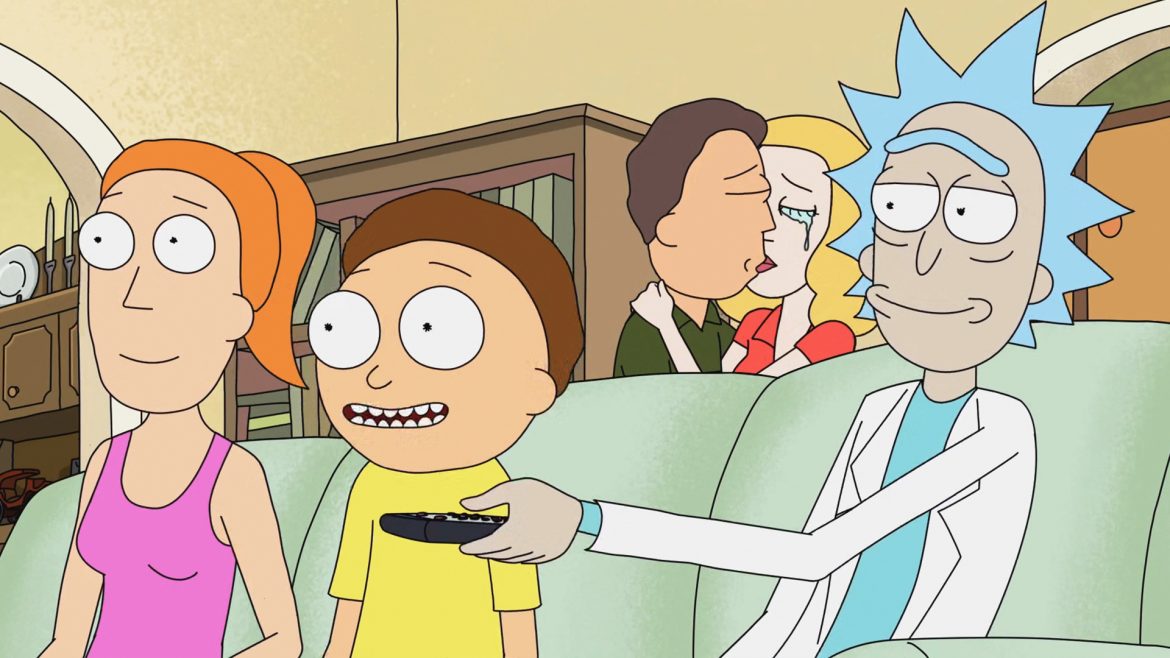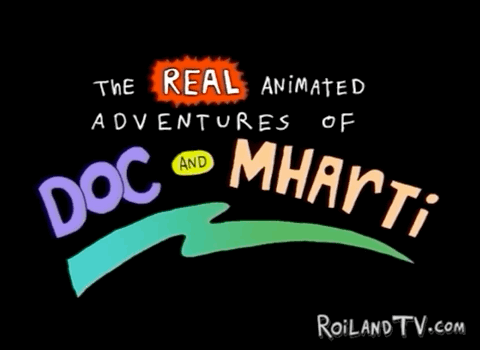In the opening segment of Rick and Morty’s pilot episode, Rick Sanchez drunkenly stumbles into his grandson Morty’s bedroom and drags him into a flying space car to make an inebriated confession:
“I had to make a bomb, Morty.
I had to create a bomb. And we’re gonna drop it down there, and get a whole fresh start.
Create a whole fresh start…”
But what Rick couldn’t have known — though as the creator of his own self-serving universe would certainly appreciate — is that the bomb had already gone off.
All of his brilliant discoveries and (debatably) noble exploits, all his hopes and dreams, were actually the byproduct of a Big Bang-esque explosion, lifetimes in the making, initiated by benevolent (if not twisted) greater forces who needed to create their own whole fresh start.
In a nice bit of cosmic irony, Rick and Morty exists solely because its creators Dan Harmon and Justin Roiland had to make a bomb…
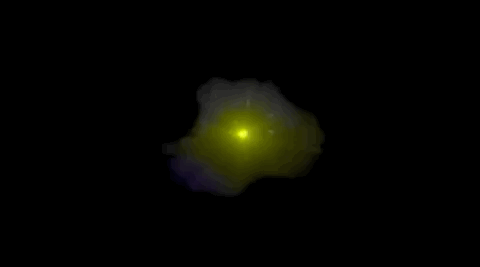
Built around a plot line involving Mharti having to repeatedly lick Doc’s balls, it was really just a showcase for Roiland’s beautifully absurd sense of humor:
Roiland himself admitted as much in an interview with The Attack: “I wanted to just make people shocked and make something horrible.”
Or, in Dan Harmon’s more poetic, hyperbolic words:
“It was just violent and aggressive and angry, but joyful.
The only words that apply to sum it all up are ‘punk rock.’ It was just fuck the queen, and fuck Pierre Cardin, and fuck my teddy bear, and fuck my mother’s lullabies. I just want to chant something. I just want to stick something through my nose until it bleeds.”
Said nose-bleeder had recently been fired from what he’s described on multiple occasions as a “very creatively stifling show” and, according to Harmon, “had this desperate urge to create. And instead of that urge flowing like a garden hose being gently turned on, it was gonna shoot out like through the barrel of a gun. It was gonna be explosive, loud and cause as much damage as possible. That’s what was gonna make him feel better after feeling stifled for so long.”
For a demonstration of that explosive, damaging creativity in action, just check out the show’s NYCC14 panel, during which Justin improvises a scene as both Rick and Morty and takes the innocuous prompt of “breakfast-making machine” to “cum french toast” before one might think humanly possible:
Enter Dan Harmon.
After being expelled from Community following the show’s first near-death experience, Harmon had been approached by Adult Swim about creating a prime time, 22-minute show for the ascending network. Skeptical of his abilities in the animation medium he turned to Roiland, who had already been trying over the course of a handful of failed Fox pilots to incorporate his beloved Doc and Mahrti voices into a full-fledged show:
“I knew I wanted to work with Justin if I was going to work at Adult Swim because, the truth is, my sensibilities left to their own devices are pretty bad. I’m not a huge animation guy by nature. I’m not tremendously visual, in terms of how I think. I tend to think in terms of dialogue and character and story.”
Or, in Justin Roiland’s more poetic, endearing words:
“Basically Dan and I got together and we kind of merged our different sensibilities and created a show where he sort of boxed in my insanity and put a little frame around it.”
To add to the show’s mythic lore, the two apparently wrote the script for the pilot in six hours in Dan Harmon’s unfurnished Community office the very same day they pitched it to the network.
Diehard fans of Harmon shouldn’t be surprised by that last fact, though. He is, after all, the man who constructed his own 8-point guide to story structure based off Joseph Campbell’s “Hero’s Journey,” which Harmon revealed in a 2012 Reddit AMA was “actually designed for Channel 101 directors who were letting ‘I’m not a writer’ stand in the way of them shooting something.”
“It was my way of saying, ‘Look, there’s such a thing as a paint by numbers story; so if storytelling isn’t your passion, just get Jack up and down his beanstalk so you have something to shoot.'”
And anyone who’s seen the infamous episode with King Jellybean knows he’s not kidding about that “just get up and down the beanstalk” thing…
With Justin “Cum French Toast” Roiland’s unlimited imagination at his disposal — plus the newfound freedom that came with working in animation and a network that fully supported him — Harmon was able to unburden himself of the heavy weight of Community’s study room table and truly test his narrative abilities.
As the first season of Rick and Morty was just beginning to air, Harmon positively gushed to Alan Sepinwall about his new playground:
“And it’s all bets are off. There’s no fourth wall you can break too much. There’s nothing too taboo. There’s no tender, tender heart that you can break by going left or right.
There’s 8,500 ways to do Community wrong. Because it’s a good show for good people that have supported it for five years, there are now over 8,000 ways to do it wrong. There are less than zero ways to do Rick and Morty wrong.”
In a separate interview with the Los Angeles Times, Harmon said it was “like kicking weights off your ankles or playing basketball on Venus,” which might explain why there are more alternate universes and esoteric homages than even Abed would know what to do with. Thanks to the lax laws of physics established in Rick and Morty’s world, literally anything, no matter how bizarre, can reasonably happen at any given moment.
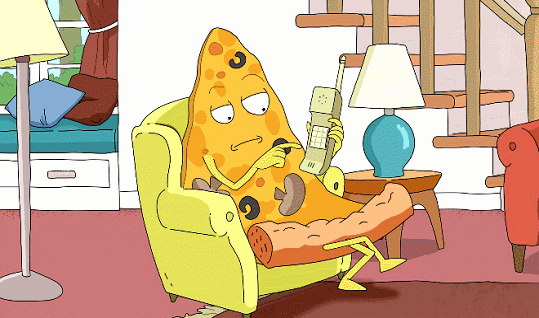
That being said, one of the truly thrilling parts of binging watching Rick and Morty is getting to witness those moments where Harmon is able to inject his trademark pomes of beauty or purpose.
Take Roy, the video game…
What could have been just a simple spoof of virtual-reality games is instead a 2-minute long visual haiku that examines the tragic beauty of human existence:
As Harmon himself noted at Comic Con back in 2013, with Rick and Morty he’s no longer forced to always be “the weird sci-fi guy going ‘How can we possibly justify this on a sitcom?’” like he was at Community. Instead, “at Rick and Morty, I’m happily the sane one who is always going, ‘How can we make this about feelings?’.”
That’s why you’ll hear him fawn over the character of Beth and her relationship with Jerry as much as he does about the cthulhu appearance in the show’s opening credits. Community was always a show about broken people that was masquerading as a major network sit-com, but Rick and Morty has let Harmon take off the cheap disguise and really examine the scars underneath; because he knows that beyond the homages and the spoofs and the sci-fi, that’s what people really respond to.
The “Total Rickall” episode, in which an alien parasite imprints false memories of fake friends and relatives, is more than just an opportunity to pull a few dozen ridiculous characters out of the writers room’s collective ass in a “Paradigms of Human Memory”-esque mock flashback episode —
— it’s a fable about how the shitty moments in life are a necessary part of being a real, live human being interacting with other real, live human beings.
That shittiness, it turns out, is how you can know you’re living an authentic existence.
Above all else though, what makes the show feel so singularly special is that, in the character of Rick Sanchez, Dan Harmon has finally found the perfect vehicle for his own beguiling existentialism and misanthropy…
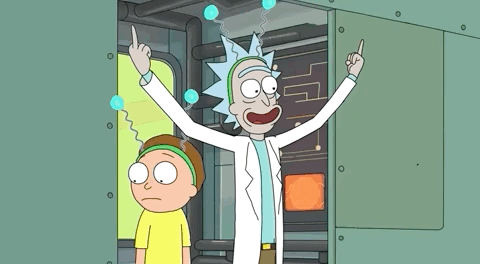
There’s a passing line in the “A Rickle in Time” episode where Summer is about to start lambasting her grandfather with some inane question only for Rick to immediately silence her by curtly replying, “Whatever you’re asking, the answer is I’m amazing.” It’s a basic corollary to the ‘no fourth wall’ concept Harmon was praising above, though it also demonstrates the deific power Harmon wields with his all-knowing, less-caring genius of a main character.
In the Alan Sepinwall interview, Harmon concedes the point:
“I think Rick is the intellectual equivalent of the Hulk. He’s that Zuckerberg, Howard Hughes kind of archetype that just doesn’t have time for everyone else’s bullshit.
And we love being that guy, and we know we’re not supposed to be him, but it’s fun to watch him operate.”
With Rick Sanchez, Harmon finally has a way (that isn’t via social media, and thus directly tied to his name) to share his unfiltered thoughts on topics like:
- the public education system
- the whole Community drama
- running and hiding as it relates to stereotypical villain one-liners
- individual freedom vs. the advancement of the state
- Worf from Star Trek
With Rick, Dan Harmon is able to sit at the breakfast table and offhandedly declare, “There is no God, Summer. Gotta rip that band-aid off now; you’ll thank me later.”
He can, via Rick’s proxy Morty, scream at every network executive and upset viewer who thinks he gives a shit about what they have to say:
“Maybe people that create things aren’t concerned with your delicate sensibilities.
Maybe the species that communicate with each other through the filter of your comfort are less evolved than the ones that just communicate.
Maybe your problems are your own to deal with, and maybe the public giving a shit about your feelings is a one way ticket to extinction.”
He can suck you in and make you trust him as an infallible authority figure only to then immediately cut you down at the knees for inauthentically laughing at a “Redgrin Grumble” joke he made up explicitly to test you:
Because of Rick’s near-superpower intellect, he can casually pose scintillating, introspective philosophical and psychological questions:
“Does Rick have affection for Morty? Does he have empathy? Is he able to appreciate the value of an individual human life? I think that is one of the handful of questions that charges the whole show.
Rick is an amazing character to me because he has diagnosable qualities of various mental illnesses but unlike a character on Parenthood or Community, he’s a cartoon character and a scientist who has seen 30 years of an infinite universe with infinite alternate universes arranged around him in a multi-spherical wave front. So if Rick does or says something that indicates that he doesn’t care about you as a human being, is he expressing a flaw in his brain or is he more evolved than us? Or is it both? And does experiencing the world on a chaotically large scale make you crazy or can only crazy people experience the world on that scale?
In either case, what’s the difference? What are our obligations to each other? What does it mean to be a person? What do we hold valuable?”
It’s not a coincidence that the man who once filmed an entire documentary about himself ended up writing a love interest for Rick whose main qualification is that it can give him unrelenting mass adoration. But it’s also not a surprise that the loss of that love, though deserved, is masterfully painted with all the raw brushstrokes of painful, uncomfortable reality…
https://youtu.be/dFgLcELbTdI
Even Rick’s seemingly-throwaway catchphrase — “Wubbalubbadubdub” — is eventually revealed to be a shimmering glint of imbued humanity, with Birdperson (voiced by Harmon himself) divulging to Morty in the inaugural season’s finale that Rick’s signature gibberish actually means something quite significant in his native Birdlanguage: “I am in great pain; please help me.”
Despite their best efforts to highlight the randomness and desolation of the universe, Dan Harmon and Justin Roiland’s impulsive act of creation infused effulgent embers of meaning into the cold cosmic chaos.
And like everyone’s favorite older brother, but better, Dan Harmon is the kind of person you can trust when he says, “Don’t run. Nobody exists on purpose, nobody belongs anywhere. Come watch TV.”

